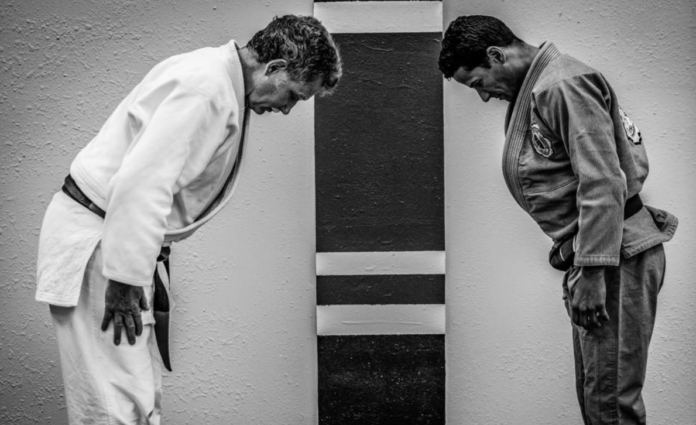
OSS Meaning: Discover Its Origin, Usage, And Purport In Martial Arts
Have you ever wondered what does Oss mean? “Oss” or “Osu” or even “Osss” is one of the phrases most often associated with Brazilian Jiu-Jitsu and other martial arts with Japanese roots. BJJ is a lot less ceremonial than Eastern martial arts Oss remains a big staple, despite the fact that many BJJ practitioners don’t know the original Oss meaning. You’re going to hear the word “Oss” when you enter a BJJ academy almost everywhere in the world. It’s almost as certain as the fact that you’re going to tap during class.
So, why not understand what you’re saying or being told? Let’s begin.
How Do You Pronounce OSS?
In most cases, pronunciation depends on your gym and your head coach and the way he uses it. You can say short “OSS” (oh-ss) or long “OSSSS” (oh-sssss).
Also, in some gyms, people use “OSU: which pronounces slightly differently, as strong and short (oh-su).
Theories For The Origins of OSS
Some researches show that the word “Oss” first appeared at the Imperial Japanese Navy Officers Academy in the early 20th century. They would use it as a greeting between themselves, as a means of paying respect.
The usage of the word “Oss” in most modern BJJ dojos around the planet is a clear reminant of BJJ’s Japanese roots. As most of you know, Brazilian Jiu-Jitsu developed in Brazil as the evolution of Mitsuyo Maeda’s Judo and Catch-Wrestling expertise.
Since it all began with the Japanese martial arts, it is logical why some Japanese formalities or “reiho” found fertile ground in Brazil. One of them is “Oss”.
Here are the main theories related to Word OSS and its origin. and true meaning.
The “Onegai Shimasu” Theory
Today, in every Japanese martial art gym or dojo in the world, when the teacher or sensei, bows to the kamiza (a shrine usually containing a Grandmaster’s photo) and then bows to the students, the students reply: “ONEGAI SHIMASU!”
At the end of the lesson, while they bow to the teacher, the students reply “DOMO ARIGATO ONEGAI SHIMASU!” The phrase “Onegai Shimasu” at the begging of the lessons demonstrates the students’ will to participate and learn. Bluntly, it translates as: „Please let’s do it“.
The other, longer version, which also contains the words “Domo Arigato” (translating as “thank you very much”) could also be interpreted as „Thank you very much for your teaching“. A fitting way to end class.
So, the root meaning of “Oss” in Japanese martial arts is a demonstration of gratitude for the knowledge shared by the instructor.
Because we Westerners tend to shorten the expressions, especially those we are not familiar with, in time, the expression „Onegai Shimasu“ slowly abbreviated into “Oss”, commonly used today to convey the same meaning as the longer term in a polite way.
The “Good Morning” OSS Theory
This theory suggests that “Oss”/”Osu” could’ve come from Japanese Linguistic Professor Mizutani Osamu’s test. Every morning, the language expert would greet random people by saying the traditional Japanese good morning phrase “ohayo gozaimasu”. While doing so, he would note every response he would receive.
While most people would respond to the greeting the same, some of them would use the shortened version “Osu” to reply. It was probably their way to shorten the greeting because “Osu” wasn’t officially noted anywhere at the time.
What’s even more interesting is that most masculine men would shorten the return greeting. So, if you take into consideration that usually muscular people train in combat sports, this theory makes sense. Somewhat.
All in all, according to this theory, the real “Oss” meaning is actually a short way of saying good morning.
The Kyokushin Theory Of OSS
In Kyokushin Karate dojos, the term “Osu” is a very usual term, but comes from the loner phrase of “osu no seishin”.
It’s actually a combination of two different Kanjis. The verb, “Osu” means “to push”, and Shinobi means “to suffer” or “to endure”. When those two verbs are put together they create a term that has a lot of interpretations.
If you google that sentence, you’ll get many different things that could actually represent the “Oss” meaning.
Here are some examples of what the meaning of “Oss” according to this theory:
- “The Importance of Effort”
- “Combat Spirit”
- “Not Showing is Suffering”
- “Advance with a steady and positive attitude”
- “The Power of Will”
- “Overcome the obstacles by going through them”
The “Oshi Shinobu” Theory
When some people in Japan would look to verbally express “Chi Energy” they would say “Oshi Shinobu”. In the book, “Book of five rings” or “Go rin no sho”, written by Miyamoto Musashi the famous katana-wielding warrior wrote that Samurais would use “Oss”/”Osu” or other similar phrases to muster their inner strength on three occasions:
- Before the fight,
- In the middle of the fight, and
- After the fight.
According to this theory, the meaning of “Oss” is actually a war cry used on the battlefield to raise the combat spirit.
What’s The Modern OSS Meaning?
The meaning of “Oss” is a diverse one today. When looking to answer the question “what does Oss mean?“, the answer is that the phrase has less of a courteous and more of a social meaning and application.
Namely, the word Oss is the go-to phrase used for greeting or an acknowledgment of understanding demonstrated techniques. It can also be shared as a compliment for a particularly impressive competition, rolling performance or to celebrate victory. For example, you could hear an entire arena muttering “Oss” in admiration of Berimbolos when they first appeared.
Although not as distinct as in Japanese culture, respect remains a huge part of Jiu-Jitsu. Some schools, like Gracie Barra, have kept more of the traditional elements than others. In a GB academy, people bow before entering the dojo, often accompanied by “Oss”. This is meant as a token of respect towards Carlos Gracie Jr, the founder. Like Eddie Bravo’s 10th Planet, other schools do barely any bowing, but “Oss” is still muttered daily as a token of respect.
So, in general, the word “Oss” demonstrates mutual respect between two sides. No matter the philosophy of an academy, the meaning of “Oss” usually expresses respectful behavior on the mats.
Meaning Of OSS In Brazilian Jiu-Jitsu
Just like in other martial arts related to Japan there are several main meanings for “Oss” in BJJ today. To sum it up, today, “Oss” means one or all of the following:
- Greeting
- Response
- Respect
- Compliment
- Encouragement
Greeting: Many practitioners in many Jiu-Jitsu gyms greet each other with Oss. Most of the time it’s used seriously, but lately, some people greet each other with “Oss” in a fun and more playful manner.
Response: If you want to say you understood something, or you acknowledged something saying “Oss” is a good way to do so.
Respect: If you want to show respect to your instructor or your teammates, bowing and saying “Oss” is probably the best way. You can wave them goodbye with “Oss” or greet them when you see them.
Also, if your instructor demands the use of “Oss” at the beginning and at the end of class, you should embrace it as a sign of respect.
Compliment: Loud and deep pronunciation of “Oss” is used when someone pulls some good technique. You can usually hear it in tournaments, but in gyms too.
Encouragement: Encouraging your teammates or just trying to tell them they did something well is always a good gesture. Using “Oss”, in that case, is a good way to encourage them, just like saying “good job”!
Who Introduced OSS To Brazilian Jiu-Jitsu Practitioners?
Grandmaster Carlson Gracie brought “Oss” to BJJ simply because he was taught to use it by Mitsuyo Maeda, who himself used it very often.
Carlson’s stuck with the term “Oss” with the goal of carrying over Japanese standards of conduct and ethics into Jiu-Jitsu.
Other modern versions of Japanese-born martial arts like Judo, Karate, Ju-Jitsu, etc, also use the term heavily, as a means of paying respect to the Japanese roots and culture.
What Does OSS Mean In MMA?
At the beginning of MMA itself, the word “Oss” was widely used, mostly in gyms among sparring partners.
The fighters themselves would come from different sports and cultures, so they wanted to represent their sport and their gym in the best possible way by paying respect through greeting people with the respectful “Oss”.
One of the most popular fighters in the world, George St-Pierre would greet everyone with “Oss” every time he would step into the octagon. He would also wear a Japanese Gi and a rising star stirnband representing the culture of Japan.
In modern times, the word “Oss” has been more or less eradicated from MMA, as all focus is now on performance, and, regrettably, sh#t talking.
Examples Of OSS Used In Martial Arts Gyms
Most of the time you’ll hear “Oss” in different situations. Although, it’s used in normal conversations too between two practitioners of the same martial art.
Below is the list of situations/conversations when “Oss” is used in gyms:
Class Intro And Outro As A Greeting: When the class is starting students line up with their professor in front of them. After a short speech from the professor, he bows and greets everyone with “Oss” and the students reply in kind.
The same bow and greeting with “Oss” usually happens after the class is done.
Acknowledgment and Understanding: Once the instructor shows the technique he will usually ask if everyone understood the technique. If everyone understood the technique it’s not unusual to hear “Oss” as a response.
In this case, the “Oss” meaning is shown as acknowledgment and understanding of instructions.
Partner Drills and Sparrings: You can say “Oss” in rolls/sparrings or when drilling when you want to praise your partner. Instead of saying “nicely done”, “you performed great” or “good technique” you can simply use the term “Oss”.
Just like at the start and the end of class, you can use “Oss” at the start or at the end of a roll.
Internet communication: I’ve noticed that many people in BJJ finish online conversations by saying OSS. So in this case the OSS meaning would be “goodbye”.
When To Use OSS And When To Not
Just like with everything there are do’s and don’ts when using “Oss”. Here are two main things to remember in case you’re used to using “Oss”:
- Only use “Oss“ with people who train in BJJ or in some other Japanese Martial Art: there’s a low chance that anyone outside of the gym is going to understand what you’re trying to say when you say “Oss” to them. So, if you want to avoid weird looks use the phrase just in conversations connected with Jiu-Jitsu.
- Try to avoid using the term too often. There is such a thing as overusing the phrase to a point where it loses it’s meaning. Check your timing and context when reaching for “Oss” in your vocabulary.
How To Use OSS Jn Japan
In the case you find yourself in Japan, using “Oss” is reserved only for special occasions. So, definitely avoid saying “Oss” to a Japanese person unless that person is:
- Younger than you,
- Lower in rank, or
- They demand you to say it
In Japan, the term “Oss” is a mark of assertiveness and masculinity, so in the case of the wrong usage of the phrase, things could get messy.
Interestingly enough, you should try to avoid “Oss” completely if you are female in Japan.
The State Of The Phrase OSS Today
As mentioned above, BJJ academies are in general considerably more laid back than traditional Japanese schools. While you can get away with “Oss-ing” your way everywhere around a BJJ gym without it being a big deal, you should take more care in the East.
The meaning of “Oss” is a multi-purposeful one, ranging from “hi” to “excuse me” to “let’s roll”. So, next time someone asks “What does Oss mean?”, or “What’s the “Oss” meaning, know that there’s more than one correct answer.
And no, it is not always appropriate to use it because you can misinterpret “Oss” meaning and look weird or even land you in trouble.
20 Rules of Life That Will Change You Written By Japanese Samurai 400 Years Ago
https://bjj-world.com/loyalty-disloyalty-creontes-traitors-brazilian-jiu-jitsu/
Guy Accused for Sexism in BJJ Class and “brushed” by his Instructor


![Darce Choke Encyclopedia – Origins, Mechanics and Variations [2025] BJJ, choke, Brabo, BJJ Darce Choke, D'arce Choke, Darce BJJ Choke](https://bjj-world.com/wp-content/uploads/2017/11/JungPoirierLeeYahoo-218x150.jpg)







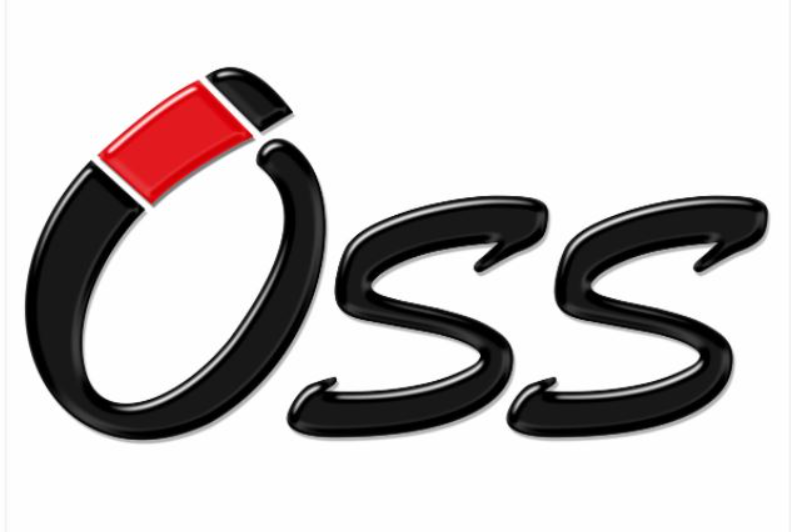
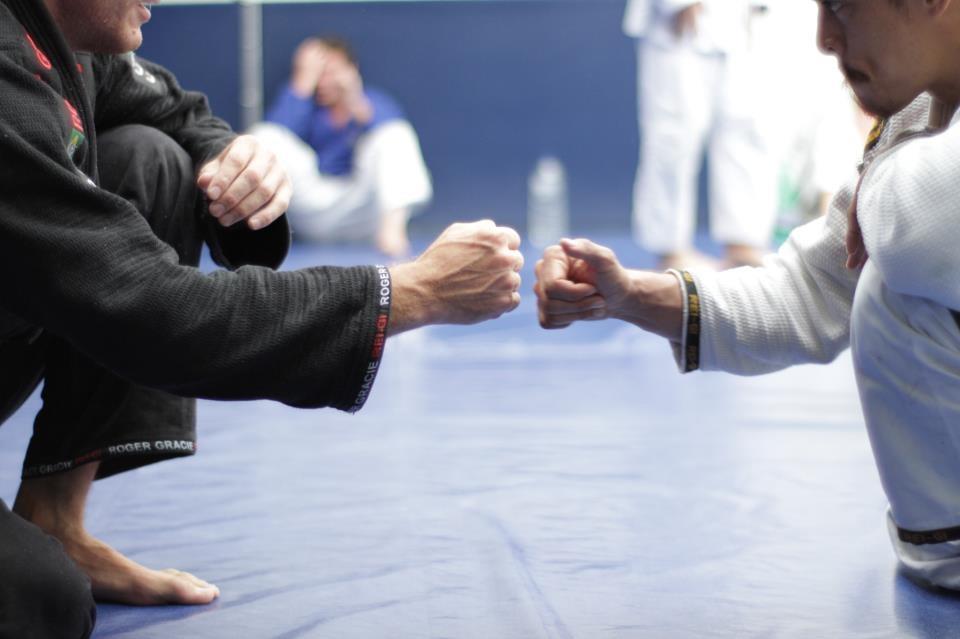
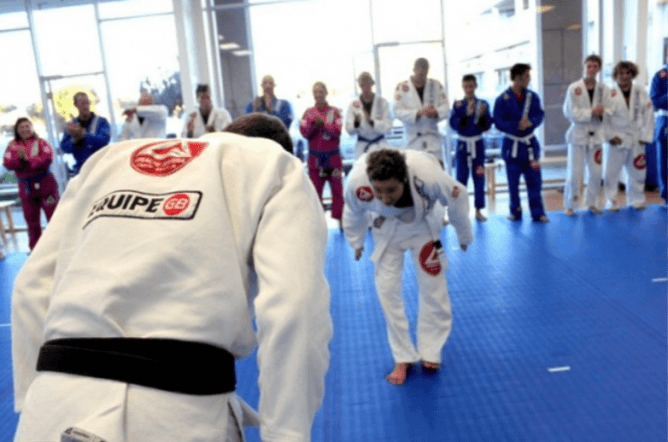
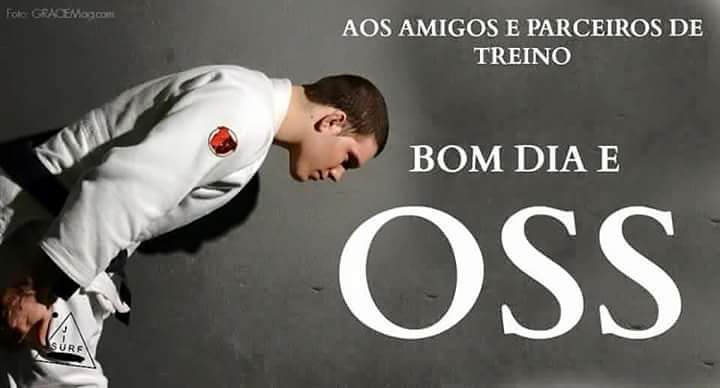
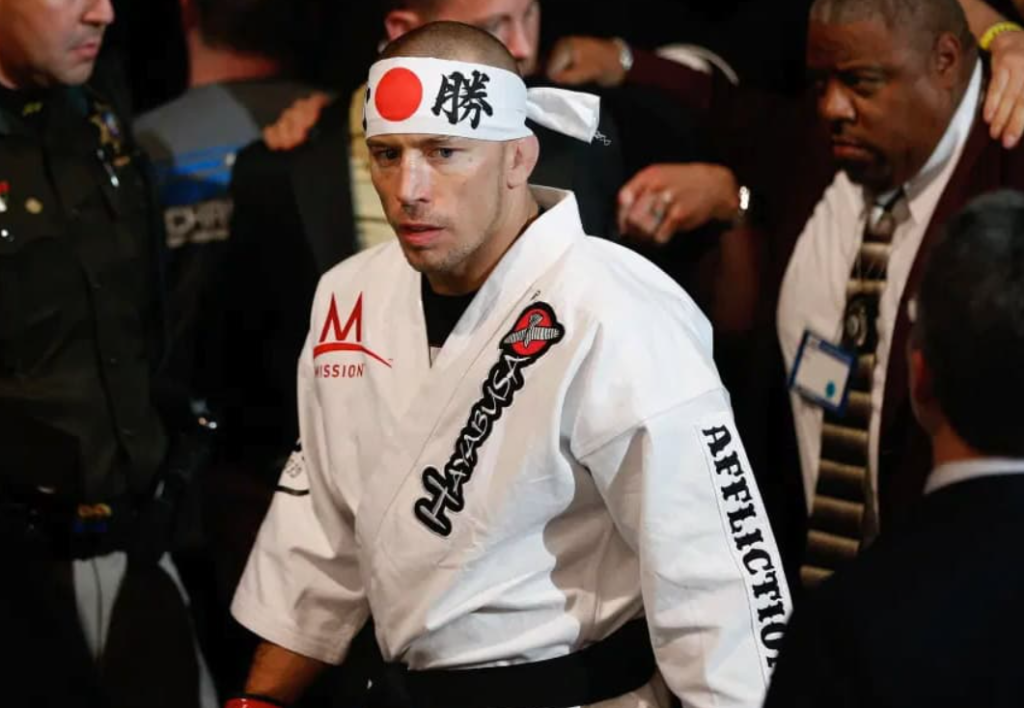




![Slicin’ Calves Mikey Musumeci DVD Review [2025] Slicin' Calves Mikey Musumeci DVD Review](https://bjj-world.com/wp-content/uploads/2025/04/slicin-calves-mikey-musumeci-dvd-review-218x150.png)
![Jiu-Jitsu For Old Guys Guard Retention Bernardo Faria DVD Review [2025] Jiu-Jitsu For Old Guys Guard Retention Bernardo Faria DVD Review](https://bjj-world.com/wp-content/uploads/2025/03/old-guys-guard-retention-bernardo-faria-dvd-review-218x150.png)
![X-Guard Trickery Kyle Sleeman DVD Review [2025] X-Guard Trickery Kyle Sleeman DVD Review](https://bjj-world.com/wp-content/uploads/2025/03/x-guard-trickery-kyle-sleeman-dvd-review-218x150.png)
![Countering with Crab Ride Anthony Budion DVD Review [2025] Countering with Crab Ride Anthony Budion DVD Review](https://bjj-world.com/wp-content/uploads/2025/03/countering-with-crab-ride-anthony-budion-dvd-review-218x150.png)
![Closet Closed Guard Craig Jones DVD Review [2025] Closet Closed Guard Craig Jones DVD Review](https://bjj-world.com/wp-content/uploads/2025/03/closet-closed-guard-craig-jones-dvd-review-218x150.png)

![Mastering The Crucifix Alexandre Pereira DVD Review [2025] Mastering The Crucifix Alexandre Pereira DVD Review](https://bjj-world.com/wp-content/uploads/2025/01/mastering-the-crucifix-alexandre-pereira-dvd-review-100x70.png)
![No-Gi Pressure Mastery JT Torres DVD Review [2024] No-Gi Pressure Mastery JT Torres DVD Review](https://bjj-world.com/wp-content/uploads/2024/10/no-gi-pressure-mastery-jt-torres-dvd-review-100x70.png)




![Get Off My Legs Gringo Craig Jones DVD Review [2025] Get Off My Legs Gringo Craig Jones DVD Review](https://bjj-world.com/wp-content/uploads/2025/03/get-off-my-legs-gringo-craig-jones-dvd-review-100x70.png)

![Finish on the Back Ethan Crelinsten DVD Review [2024] Finish on the Back Ethan Crelinsten DVD Review](https://bjj-world.com/wp-content/uploads/2024/10/finish-on-the-back-ethan-crelinsten-dvd-review-100x70.png)
![Compass Kneebar System Charles Harriott DVD Review [2024] Compass Kneebar System Charles Harriott DVD Review](https://bjj-world.com/wp-content/uploads/2024/11/compass-kneebar-system-charles-harriott-dvd-review-100x70.png)




![The Buchecha Gi Takedown System DVD Review [2025] The Buchecha Gi Takedown System DVD Review](https://bjj-world.com/wp-content/uploads/2025/01/buchecha-gi-takedown-system-dvd-review-100x70.png)

![Wrestling For Jiu-Jitsu Shawn Williams DVD Review [2025] Wrestling For Jiu-Jitsu Shawn Williams DVD Review](https://bjj-world.com/wp-content/uploads/2025/01/wrestling-for-jiu-jitsu-shawn-williams-dvd-review-100x70.png)


![Back Hacks Yigit Haney BJJ DVD Review [2025] Back Hacks Yigit Haney BJJ DVD Review](https://bjj-world.com/wp-content/uploads/2024/12/back-hacks-yigit-haney-bjj-dvd-review-100x70.png)
![Old School BJJ Ricardo Cavalcanti Fundamentals DVD Review [2024] Old School BJJ Ricardo Cavalcanti Fundamentals DVD Review](https://bjj-world.com/wp-content/uploads/2024/09/old-school-bjj-ricardo-cavalcanti-dvd-preview-100x70.png)



![Trip Throw Dilemma Michael Pixley and Heath Pedigo DVD Review [2024] Trip Throw Dilemma Michael Pixley and Heath Pedigo DVD Review](https://bjj-world.com/wp-content/uploads/2024/10/trip-throw-dilemma-michael-pixley-dvd-review-100x70.png)

![The Whole Omoplata Enchilada Lyanne Perez DVD Review [2024] The Whole Omoplata Enchilada Lyanne Perez DVD Review](https://bjj-world.com/wp-content/uploads/2024/11/whole-omoplata-enchilada-lyanne-perez-dvd-review-100x70.png)